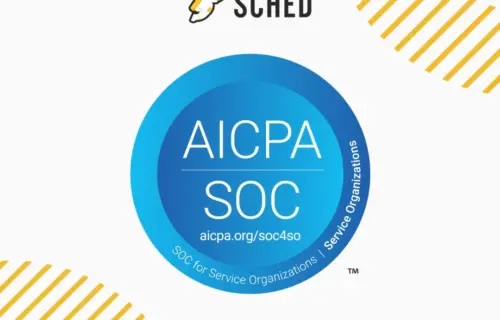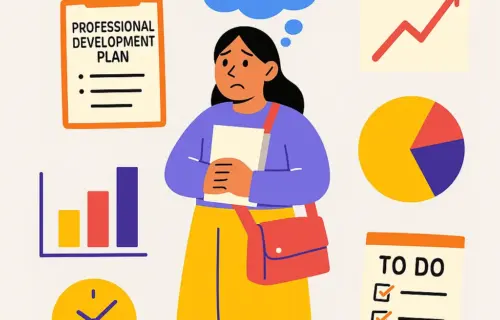The importance of professional development topics for teachers cannot be overstated. They play a crucial role in equipping educators with the necessary skills to teach effectively in an ever-evolving educational landscape.
These topics range from enhancing digital instruction techniques to addressing student mental health and engagement strategies. Understanding and implementing these professional development topics ensures that teachers remain competent, confident, and adaptable in their practice.
In this article, readers will explore key topics and discover resources that can significantly enhance teaching practices.
TL;DR
Table of contents
- 1 TL;DR
- 2 The Importance Of Good Professional Development For Teachers
- 3 9 Professional Development Topics For Teachers
- 3.1 1. Self-Care for Educators
- 3.2 2. Project-Based Learning (PBL)
- 3.3 3. Flipped Classroom Techniques
- 3.4 4. Literacy Across the Curriculum
- 3.5 5. Classroom Management Strategies
- 3.6 6. Cultural Competence
- 3.7 7. Assessment and Evaluation
- 3.8 8. STEM and STEAM Education
- 3.9 9. Social and Emotional Learning (SEL)
- 4 Key Takeaways
- 5 FAQs
- Prioritizing health and well-being is essential for teachers to manage classroom challenges effectively.
- Project-Based Learning (PBL) enhances student engagement through hands-on, collaborative projects.
- Developing strong curriculum design skills is pivotal.
The Importance Of Good Professional Development For Teachers
Good professional development is crucial for teachers to enhance their skills and adapt to the ever-evolving educational landscape. Engaging in effective professional learning allows educators to refine instructional methods, integrate new technologies, and address diverse student needs.
Professional development fosters collaboration among teachers. By participating in workshops and seminars, teachers can exchange ideas and strategies, leading to improved classroom practices.
Project-based learning is a popular focus area, offering teachers dynamic methods to engage students actively. This not only benefits students but also encourages teachers to innovate and stay motivated.
Self-care is another critical component. When teachers prioritize their own well-being, they become more effective educators with increased resilience and energy to tackle their responsibilities.
Professional development also plays a significant role in closing achievement gaps. It equips teachers with strategies to support students from various backgrounds, ensuring that every child receives quality education.
Incorporating technology and coding in courses helps teachers prepare students for future challenges. These skills are essential in today’s digital world and enhance the learning experience.
By focusing on important topics like differentiated instruction and adolescent literacy, teachers can address the unique needs of their students. This individualized approach leads to better student outcomes.
Investing in good professional development is essential to build strong educational communities where both teachers and students thrive.
9 Professional Development Topics For Teachers
1. Self-Care for Educators
Maintaining mental and physical well-being is crucial for educators to effectively manage classroom responsibilities.
2. Project-Based Learning (PBL)
Engages students in practical, hands-on learning experiences that promote collaboration and critical thinking.
3. Flipped Classroom Techniques
Shifts instructional content delivery to an online format, leaving class time for interactive activities.
4. Literacy Across the Curriculum
Aims to improve student reading and writing skills across different subjects.
5. Classroom Management Strategies
Focuses on techniques to create a positive and productive classroom environment.
6. Cultural Competence
Develops awareness and respect for diverse backgrounds to foster inclusive teaching practices.
7. Assessment and Evaluation
Refines methods for measuring student learning outcomes and providing feedback.
8. STEM and STEAM Education
Encourages teaching across science, technology, engineering, arts, and mathematics areas to bolster innovation.
9. Social and Emotional Learning (SEL)
Promotes skills like empathy, decision-making, and interpersonal relations among students.
Key Takeaways
FAQs
What Challenges Do New Teachers Face?
New teachers often navigate various challenges as they begin their careers. Classroom management is a primary concern, as they learn to maintain order and encourage learning without disrupting the flow. Time management becomes critical since balancing lesson planning, grading, and other responsibilities can be overwhelming.
Additionally, they may encounter issues understanding diverse student needs and learning styles. Adjusting to school culture and building relationships with colleagues and parents are essential yet challenging components of their new roles. Support in these areas can make the transition smoother.
What Resources Can Help New Teachers?
Various resources are available to help new teachers thrive in their profession. Mentorship programs pair experienced educators with newcomers, offering guidance and support. Professional development workshops provide training in specific skills such as curriculum planning and technology integration.
Online platforms and educational forums allow new teachers to connect with a wider community for advice and resource sharing. Self-care resources are equally important, helping teachers manage the pressures of their profession and maintain personal well-being. Access to these resources can significantly enhance a new teacher’s effectiveness and confidence.
What Is A Professional Development Path Like For Teachers?
A teacher’s professional development path involves continuous growth to enhance their skills and knowledge.
It generally begins with induction programs for new educators, guiding them through initial challenges.
Assessment tools may be employed to identify areas needing improvement.
As their careers advance, teachers participate in specialized workshops and pursue certifications to gain expertise in specific areas.
These areas include differentiated instruction or special education.
Reflective practices and ongoing learning are integral to this path.
These ensure teachers remain effective and up-to-date with educational trends.









